The Royal Conservatoire is a highly internationally-oriented institute, with many international students and staff members, and with a curriculum almost entirely offered in English. The Royal Conservatoire is active in numerous alliances and projects around the world, and member of various European and International associations including the European Association of Conservatoires (AEC), the European Association of Music in Schools (EAS), the International Music + Media Centre (IMZ), the International Association of Schools of Jazz (IASJ), and the Audio Engineering Society (AES). The Royal Conservatoire is also a proud founder and member of ConNext, an international network formed by music universities strongly united by a shared vision to connect musicians, music enablers and researchers, and which advocates for shared leadership.
International Networks
The Royal Conservatoire is a member of ConNext, an international network which aims at promoting exchanges, development of expertise and curriculum development. Students can also participate in exchange programmes within this network.
The ConNext consortium operates on the basis of the ConNext Charter,which sets out 10 basic principles that are endorsed by all the participating institutes.
The Royal Conservatoire The Hague
Sibelius Academy in Helsinki
Norwegian Academy of Music in Oslo
Schulich School of Music - McGill University in Montreal
Queensland Conservatorium in Brisbane
Yong Siew Toh Conservatory in Singapore
Orpheus Institute in Ghent
Haute école de musique Genève – Neuchâtel
USC Thornton School of Music
The Guildhall School of Music & Drama in London
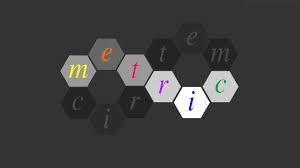
METRIC (Modernizing European Higher Music Education through Improvisation) is a cooperative network of several leading European conservatoires and the AEC (European Association of Conservatoires) with the aim to focus on the modernisation of higher music education through intensive international cooperation in the field of improvisation. This aim is based on the conviction of the METRIC institutions that improvisation education can have a notable effect on existing curricula in higher music education institutions. Through a continuous process of mutual enrichment, METRIC wants to support the development and improvement of improvisation teaching, performance and research. In doing so, it also wants to take care of genres and styles with less-established activity in improvisation.
The METRIC Network is open to all genres and styles of improvised music, from stylistic, tonal and modal, through to free improvisation.
METRIC intends to achieve its aim through the following actions that will raise collective interest and awareness among institutions, teachers and students active in the field of improvisation:
1. the organisation of an annual Intensive Programme on improvisation, five full days of workshops and masterclasses held by experienced teachers;
2. the creation and implementation of Joint European Modules in the area of improvisation, designed to share and develop the knowledge, traditions and experiences of the participating institutions by encouraging teachers and students to engage in educational mobility and cross-border cooperation;
3. the maintenance and further development of the website metricimpro.eu as a resource for information of the work done by the METRIC institutions in the area of improvised music, their related curricular structures, learning and teaching approaches, methodologies and performing practices. The website also contains an exercise archive, a video collection of exercises on the different forms of improvisation, including warm-up games, tonal improvisation, free improvisation, ensembles and cross-arts;
4. the further development of improvisation education through the production of a wide range of articles, videos, essays, research and current improvisation-related events, all of which are presented on the METRIC website. A framework for reliable, objective and creative assessment criteria for improvisation is also offered for consideration and use;
5. the organisation of meetings of the METRIC Steering Group, which consists of representatives of all METRIC institutions, to discuss issues related to network management and exchange views on the latest developments in improvisation education.
European Association of Conservatoires (AEC), Brussels
Conservatoire de Paris
Estonian Academy of Music and Theatre, Tallinn
Escola Superior de Música de Catalunya, Barcelona
Guildhall School of Music & Drama, London
Hochschule für Musik und Theater Leipzig
Lithuanian Academy of Music and Theatre, Vilnius
Lucerne School of Music
Norwegian Academy of Music, Oslo
Royal Conservatoire of Scotland, Glasgow
Royal Conservatoire, Antwerp
Sibelius Academy, Helsinki
ECMA is the European Chamber Music Academy, which has been providing proving grounds for young professional chamber music ensembles for 16 years, and of which The Royal Conservatoire The Hague is a proud and active member. Top-flight European music schools and leading festivals, across Europe and all the way to Shangai, cooperate in the ECMA training and career-building programme. During two years of advanced training with a total of eight one-week sessions per year and with a regular academic variant beginning in 2019 in the form of the ECMAster programme, participating ensembles receive intensive support from renowned tutors in the cultural contexts of the countries where their work takes place.
The European Chamber Music Master - ECMAster - is a unique two year joint European programme at master level for pre-existing chamber music ensembles. This programme it is operated by seven European ECMA leading higher music education institutions.
Universität für Musik und darstellende Kunst - Austria, Vienna
Grafenegg Kulturbetriebsgesellschaft m.b.H. - Austria, Grafenegg
Shanghai Conservatory of Music - China, Shanghai
Det Kongelige Danske Musikkonservatorium - Denmark, Copenhagen
Conservatoire national supérieur de musique - France, Paris
Scuola di Musica di Fiesole – Fondazione Onlus - Italy, Fiesole
Lietuvos muzikos ir teatro akademija - Lithuania, Vilnius
Norges musikkhøgskole - Norway, Oslo
Hochschule der Künste - Switzerland, Bern
Koninklijk Conservatorium Den Haag - The Netherlands, The Hague
Royal Northern College of Music - United Kingdom, Manchester
First initiated in 2006, ICON (Innovative Conservatoire) is an international collaboration that brings together teachers from music conservatoires to share and explore practice, reflect, research and innovate. ICON organises tailor-made professional development seminars for conservatoire teachers, and is designed to stimulate knowledge exchange and collaborative reflective practice. The project has been coordinated by the Royal Conservatoire since 2018 and organises meetings for teachers several times a year to discuss and explore relevant current themes. Seminars focus on key themes: effective one-to-one teaching, small group and master class teaching; the role of coaching/mentoring in music education; the artist in society and artists citizenship; improvisation and creativity; the art of practising; presence and performance; using assessment and feedback for learning; health and well-being; and approaches to reflection and practice-based research. Working forms used in the seminars demonstrate a unique approach to reflective practice and integrate practical exploration and processes of illuminating tacit knowledge through reflection.
In association with the Royal Conservatoire of Scotland in Glasgow and the Norwegian Academy of Music in Oslo, The Royal Conservatoire also organises ICONgo seminars. During these hands-on sessions, teachers from all three conservatoires get the opportunity to increase their expertise with an international dimension, and with the help of experts from abroad.
The International Benchmarking Group (IBG) project has been initiated by The Royal Northern College of Music (RNCM) in Manchester in 2011 with six partners from Europe, North America, the Far East and Australia. All partners joined the project because they were interested in finding out what they are good at and what they can improve. The project has provided very useful management information about, e.g. the composition of the curricula or about the total amount of teaching hours allocated to one-to-one instrumental and vocal tuition, a subject often addressed by teachers. The Royal Conservatoire The Hague is a partner of this project together with:
Royal Northern College of Music, UK
Haute Ecole de Musique de Genève, Switzerland
New England Conservatory, USA
Norwegian Academy of Music, Norway
Sydney Conservatorium, Australia
University of Music and Performing Arts Graz, Austria
College of Music, Mahidol University, Thailand
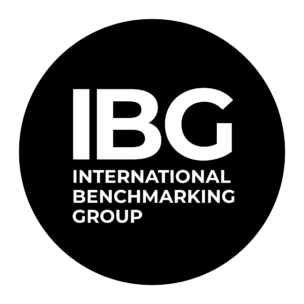
European Projects
The Royal Conservatoire is active in various European projects, most of which are financed by EU programmes, such as Erasmus+, which promotes and supports student and teacher exchanges. Here below is a list of the Strategic Partnerships and Creative Europe Projects The Royal Conservatoire is, or was, involved in, including information about each of them.
European University Alliance
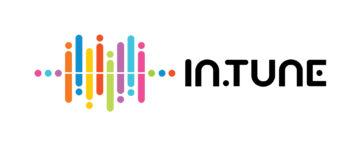
IN.TUNE is the only European Universities Alliance in the field of music and arts. Bringing together eight universities in the field of music and arts, it is committed to the development of a joint long-term strategy with a strong artistic dimension for high quality education, research, innovation and service to society, becoming a role model for the wider higher education community across Europe and beyond.
Strategic Partnerships
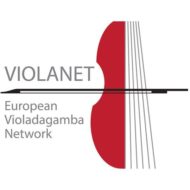
ID N. 2018-1-IT02-KA203-048476
VIOLANET: European Viola da Gamba Network
Between 2018 and 2021, VIOLANET developed a European network between universities and institutes of higher musical education to create courses of study for the Viola da Gamba, strengthen the skills of the music students, promote teaching methodologies and innovative tools for teachers, to enhance cooperation between European university institutes and to disseminate music for viola da gamba through concerts, recordings, open classes and conferences.
The Universities and Higher Education Institutes involved were:
Royal Conservatoire The Hague (The Netherlands)
School of Music of Fiesole (Italy), as leader
Conservatorio Superior de Música of Vigo (Spain)
Mozarteum University of Salzburg (Austria)
Hochschule für Musik Franz Liszt of Weimar (Germany)
Conservatoire National Supérieur Musique et Danse de Lyon (France)
General objectives of this Erasmus+ project were:
- design and implement European higher education training paths on the viola da gamba whith ECTS assessment, validation, recognition;
- design and implement transnational exchange and training opportunities for teachers in order to share innovative methodologies and tools for teaching viola da gamba;
- design and realise a digital resource center, for teachers and musician students, aimed to strengthen cooperation and exchange among European universities;
- create a European Network of the Viola da Gamba, able to expand the network of contacts and exchanges among universities and European institutes of high musical education, among teachers and students, musicians and producers of musical instruments, professionals and amateurs;
- promote knowledge, study and interest in sacred music as part of the European cultural heritage in the different local communities.
The target groups were the students and teachers of Viola da Gamba from the Universities and Institutes of Higher Education involved in the project.

The Royal Conservatoire was a partner in the ‘Kodály Hub’ Erasmus+ project. The core of this project, which took place from 2016 until 2019, was the development of an online database. This database will hold, amongst other things, 900 songs, teaching materials, classroom techniques, and background information concerning music education through the Kodály methodology. Besides this database, a curriculum for Kodály-inspired teacher training programmes was developed. The project was coordinated by the Liszt Academy Budapest and receives funding from the ERASMUS+ programme as a Strategic Partnership. The other partners in this project were the Royal Conservatoire of Scotland, NYCOS, Vocaal Talent Nederland and Kós Károly (Hongarian primary school).
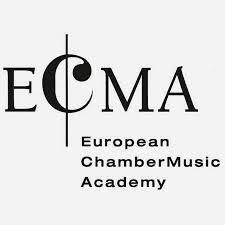
The Royal Conservatoire was a partner in the ‘ECMA – Next Step’ (2015-2018) project. This was a joint venture with conservatories and festivals in Vienna, Manchester, Paris, Vilnius, Fiesole, Prague, Grafenegg and Oslo. The project focused on curriculum development and promoting intensive cooperation in the field of chamber music in association with the European Chamber Music Academy – ECMA. The project was coordinated by the Norwegian Academy of Music in Oslo and received funding from the ERASMUS+ programme as a Strategic Partnership.
The new Master's specialisation European Chamber Music Master – ECMAster is a direct result of this project!

The Royal Conservatoire was a partner in the ‘Vox Early Music’ (2015-2018) project with conservatories in Bucharest, Parma, Eisenstadt and Vicenza. This project was dedicated to curriculum development and to promoting intensive cooperation in the field of early music singing and was coordinated by the National University of Music in Bucharest and funded by the ERASMUS+ programme as a Strategic Partnership.
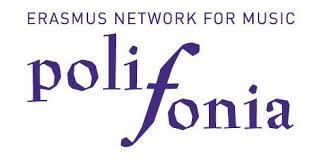
In the period 2011-2014 the Royal Conservatoire coordinated the large ERASMUS Network for Music ‘Polifonia’. in association with the European Association of Conservatoires (AEC). ‘Polifonia’ is the largest European project for higher education in music to date and covered various relevant subjects such as employability, assessment and appraisal, development of joint programmes, exchange of external examiners, external quality assurance and accreditation and research in conservatories. The results of ‘Polifonia’ can be found on its website.

In the project ‘Modernising European Higher Music Education through Improvisation – METRIC’ (2015-2018) we worked with conservatories in Tallinn, Paris, Vilnius, London, Helsinki, Oslo, Bucharest, Barcelona, Leipzig, Antwerp, Glasgow and Gothenburg. The project was devoted to curriculum development and to intensifying cooperation in the field of improvisation with the aim of establishing a European Master’s programme in improvisation. The project was coordinated by the Estonian Academy of Music in Tallinn and financed by the ERASMUS+ programme as a Strategic Partnership.
An important outcome of the METRIC project has been the development and establishment of three Joint European Modules in the area of improvisation.
Further information (course content and course descriptions) can be found for each Joint European Module below:
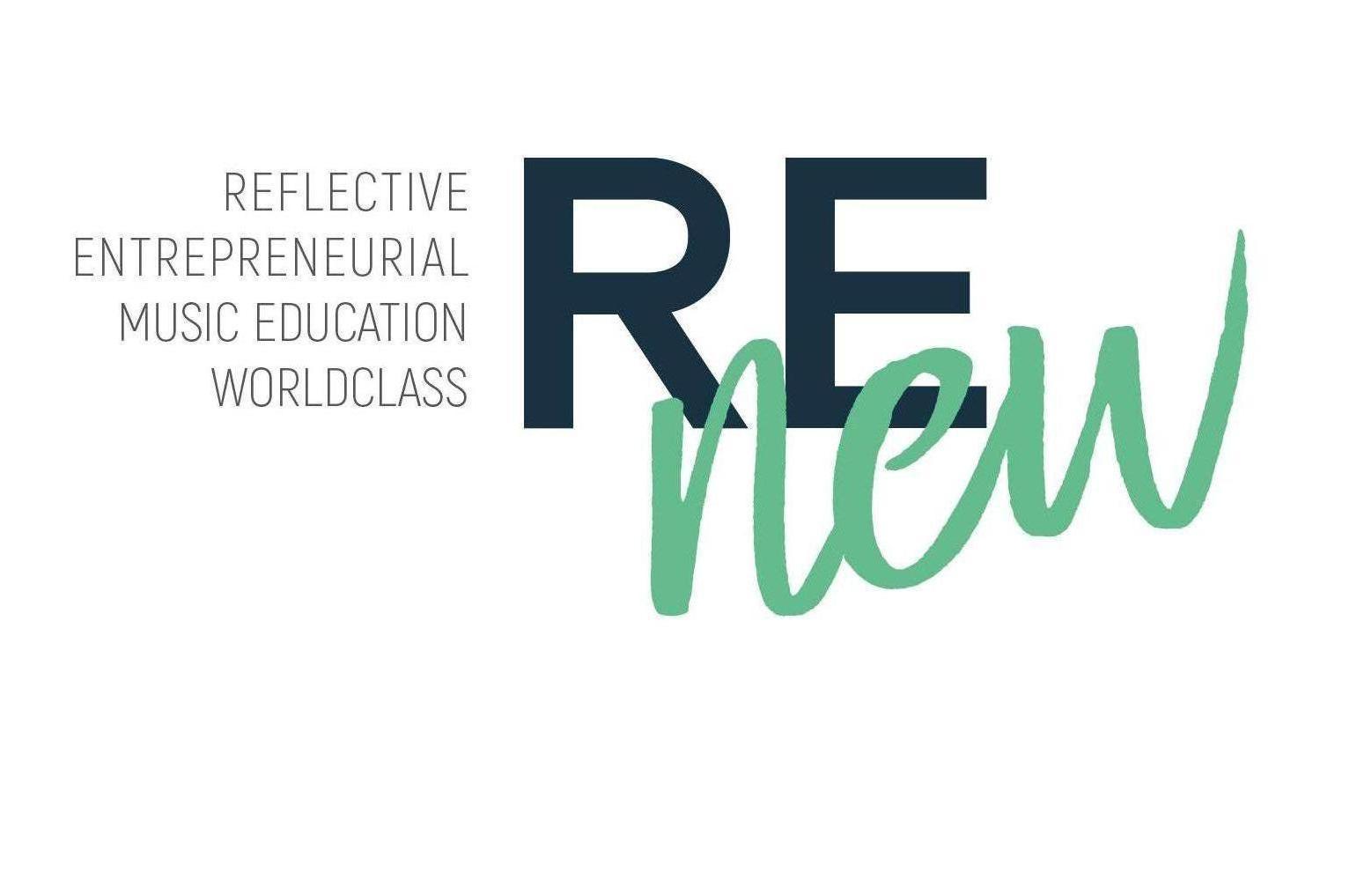
The project aimed at promoting entrepreneurship as an important component of higher music education (HME) programmes; to establish entrepreneurship as a catalyst for curricular innovation in European HME in general and particularly in the partner institutions involved in the project. RENEW will thus contribute to improving the employability of future music graduates through the artistic, pedagogical and entrepreneurial development of higher music education studies.
The Renew partners, together with the Royal Conservatoire The Hague, are:
Det Jyske Musikkonservatorium, Aarhus (DJM)
Guildhall School of Music & Drama, London (GSMD)
Sibelius Academy of Music (SIBA)
Norges Musikkhøgskole (NMH)
Association Européenne des Conservatoires (AEC)

The NAIP collaboration has been active in curriculum development projects along with associated partners, and received funding from the Erasmus+ Programme for the activities. Before the launch of the new Erasmus+ Programme in 2014 the consortium received numerous grants Erasmus Lifelong Learning Programme to fund the NAIP Intensive Programmes, which have been held since 2009.
Between 2014 and 2016 a two year Erasmus+ strategic partnership was created and funded under the name “NAIP: Innovation in Higher Music Education”. It aimed at the modernisation of curricula, and teaching and learning approaches in higher music education through a further development of the European Music Master for New Audiences and Innovative Practice (NAIP). Besides the official Erasmus+ strategic partnership partners, the other partners participated in the project as external evaluators and helped with disseminating the project’s results.
The European Master of Music for New Audiences and Innovative Practice (NAIP) programme was then developed to address issues such as the enhancement of personal skills, self-confidence, community engagement, collaboration skills, knowledge of diverse styles in music, improvisation, peer evaluation, reflection etc., now increasingly known as creative collaborative learning, as well as the fact that higher education, needs to aim more and more at personal strength, experience and adaptability, instead of just supplying information and training.
The strategic partnership focused on developing new content and sustainable structures for the NAIP training programme in terms of curriculum, mobility and recognition. It developed expertise in the field of new audiences & innovative practice, especially with regards to the pedagogical knowledge and skills of the NAIP teachers, as well as to strengthen the position of the NAIP philosophy in regular training programmes.
In 2016, the NAIP collaboration initiated a new Strategic Partnership, funded by the Erasmus+ programme with the title NAIP: Training Artists Without Borders. The project started in autumn 2016 and will finish in autumn 2018. This project aimed at the modernisation of curricula and learning environment, through an interdisciplinary dialogue between higher education in music and performing arts, and it presented opportunities offered by cross-border and cross-art collaboration as a tool for curricular innovation, with active participation of academics and students in the field of music and performing arts, as well as players from the professional field.
In today’s professional environment of artists, the boundaries between subjects of art are becoming more and more blurred. As it is now apparent that interdisciplinary skills are an inseparable part of working in the professional environment of music and performing arts, the higher education institutions must respond to the students' needs to train in a cross-art learning environment. This project responded directly to this need, offering both teachers and students the opportunity to engage in interdisciplinary discourse and activities. It also gave rise to the creation of a bank of resources which is available to the date on the official NAIP website and the Music Master New Audiences and Innovative Practice, which is offered by the Royal Conservatoire The Hague. For more information regarding the Master at our conservatoire click here and for the list of partners follow this link.
Erasmus Capacity Building

ERASMUS+ project 598825-EPP-1-2018-1-RS-EPPKA2-CBHE-JP
Enhancing the digital competencies and entrepreneurship skills of academic musicians in Serbia for culturally more engaged society The DEMUSIS project is a three-year Capacity Building in the Field of Higher Education project co-funded by the European Commission's Erasmus+ programme and coordinated by the Faculty of Music, University of Arts in Belgrade.
DEMUSIS aims and objectives
The Project aims at enhancing entrepreneurial abilities of academic musicians to use technologies artistically, creatively, and responsively in general and cultural context. The objective is to introduce forward looking curricula that will offer sustainable career for musicians and provide them with knowledge, skills and understanding on how to work alone and manage their own career.
DEMUSIS aims to ensure capacity development of Higher Education Institutions to educate culturally engaged professionals willing to participate in the civil society.
There are 3 main project objectives:
1) development of new master programme "Music in digital environment", modernization of existing study programmes in areas of music entrepreneurship and digital competences. E-learning platform, online courses and LoLa system for distant musical performance will encourage the use of digital technologies;
2) continuing professional development for music professionals, aiming at improvement and enhancement of their digital and entrepreneurial skills;
3) strengthening music education in its lessons in citizenship and cultural participation and to bridge the current gap between music higher education institutions and civil society.
DEMUSIS partners
The project consortium is composed of 6 academic and 3 non-academic partners from Serbia and EU:
The Royal Conservatoire, The Hague, Netherlands
University of Arts in Belgrade, Faculty of Music, Serbia
University of Novi Sad, Academy of Arts, Serbia
University of Kragujevac, Faculty of Philology and Arts, Serbia
New Bulgarian University, Bulgaria
Lithuanian Academy of Music and Theatre, Lithuania
Radio Television Serbia
EIPIX Entertainment
Association Européenne des Conservatoires, Académies de Musique et Musikhochschulen (AEC), Brussels, Belgium
For more details please visit the website.
Creative Europe

The European Chamber Music Academy – ECMA is the leading European network of music universities and festivals aimed at supporting up-and-coming professional chamber music ensembles. During the coming four years, the ECMA Pro project, co-funded by the Creative Europe Programme of the EU, aims to take the ECMA activities to another level by adding several elements:
- Showcases:
A series of showcases will present ensembles to the music industry and provide the unique opportunity for dialogue and coaching with representatives from the international concert business. - Musethica:
Through the Musethica method and its intense concert training, ensembles will explore how to deal with new audiences in non-traditional concert settings such as prisons, schools for special needs, hospitals or refugee hostels. Through this the musicians also will experience a new scope of the social relevance of their work. - Innovative concert formats:
In workshops, together with international experts the young musicians will develop innovative concert formats within traditional venues. - Career skills:
Additionally, workshops and lectures will provide the artists with the essential career skills needed to develop and grow their careers in a rapidly changing professional environment. On-site training sessions will be supported by an online platform to be developed as a digital learning tool for career skills for chamber music ensembles. - Enhanced Digitization:
Digitization is another focus within the project: Coaching and workshops during the training sessions will be filmed, and video tutorials will be produced to be published on the ECMA Digital Knowledge Center of Teaching Chamber Music, a freely accessible resource for chamber music students and teachers all over the world. Formats of blended mobility and blended learning, combining physical and digital parts in sharing experience and artistic exploration will be developed. - Career Development Switchboard:
Finally, the ECMA Career Development Switchboard will be developed as a presentation platform for ECMA ensembles and an online hub between the musicians and international concert operators.


Composer Collider Europe – CCE is the name of the Royal Conservatoire The Hague new project, granted by the Creative Europe Programme. Among others, the project included a series of transnational activities for composition students / alumni from three partner universities, offering them the opportunity to cooperate with professional composers / professors and Ensemble Musikfabrik.
The Royal Conservatoire has formed an intensive partnership with the European Union Baroque Orchestra (EUBO) as part of the ‘EUBO Mobile Baroque Academy – EMBA’ project. In the course of this project we organise joint performances with the EUBO and master classes in early music at conservatories in Central and Eastern Europe through visits by teachers and via online courses. The project is for four years and is supported by the European Union’s Creative Europe Programme.
Covid induced crisis of the Music industry has increased the stress on digital transition in the field of music. Europe fit for the digital age requires easy access to online goods, in this case to music records, and a
functioning music community. The music sector has been based on physical meetings of the community for ages and now it's facing substantial changes. This is making positive pressures, helping to consolidate a new digital Single market based on the online community.
The objective of this project is to enhance the capacity of the European sector of music, innovate the way music is distributed and listened to, to help musicians prosper and to preserve, innovate and cultivate European aesthetics based on humanist ideas. Professionals from the field of music will be offered alternative tools for distribution of music records, which will also monitor consumer habits of the audience and develop them in a positive way.
The platform will be permanently tested and further developed to suit the needs of music professionals and their audience.
Umbrella for Music Curators (UFMC) will develop an innovative Music-On-Demand (m.o.d.) platform that will not only make it possible to increase the artistic quality by a more efficient sharing of know-how, innovations and art values in the field of Music, and it is also a step to the environmental sustainability by minimising the carbon footprint of musical production (extensive travel and issuing of physical records). However, m.o.d. streaming combines technological, as well as legal challenges which can‘t be faced easily by smaller entrepreneurs and communities. This results in a gap between the “gate-opener” m.o.d. streaming platforms and small projects of exclusively local character, which blocks the way to digital transition and a Single Market in the field of musical industry.
This project is to bridge this gap, making it easy for independent European music curators to run their own curated m.o.d. collections of music under one European umbrella, bringing together independent labels
and professionals from the musical industry and providing them with a fair and transparent business model (compared to the often questioned model of the “gatekeeper” m.o.d. platforms) as well as transparent and
fair licensing platform.
Plurality and diversity are key factors of competitiveness of the European music industry, and need to be supported in the m.o.d. sector. Cooperation of a diverse group of participants under one platform will bring plurality, higher competition and thus increased quality and a better and more confident shaping of each participant.
The partners of this project are:
- The Royal Conservatoire The Hague - Institute of Sonology
- Hevhetia - music publishing house established in 2002 in Slovakia
- Żorskie towarzystwo kulturalne Kontrapunkt - association that implements cultural projects in Poland
- Zahrady soutoku - open air festivals in Czech Republic
Contact Information for International Networks and Projects
International Relations Coordinator
Elsa Ferreira
e.ferreira@koncon.nl

